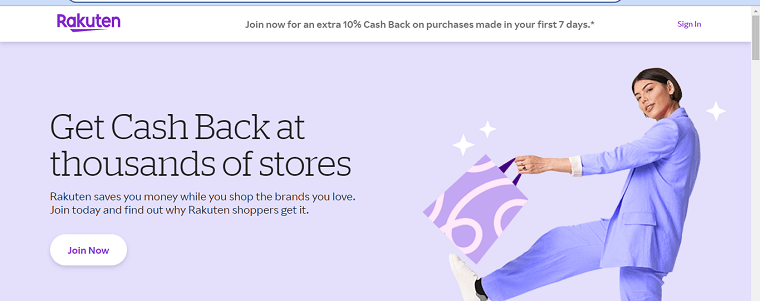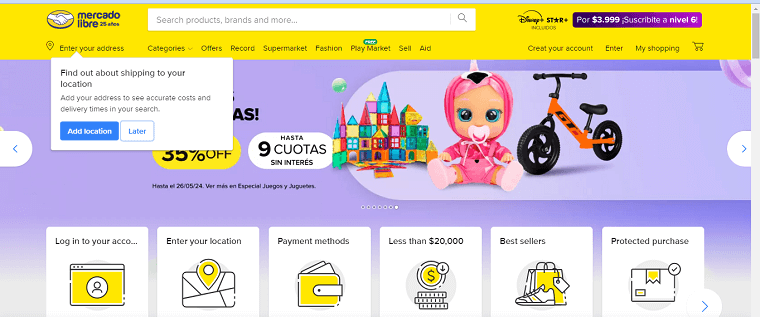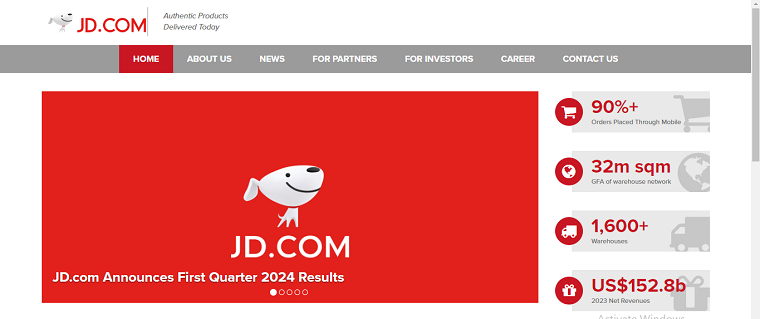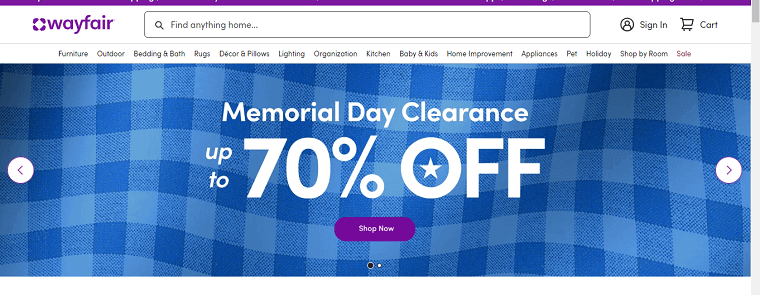What Are Your Options: Top 10 Amazon Competitors in 2024

Are you looking for Amazon Competitors in 2024? If yes, here you are in the right place. Amazon is the unchallenged e-commerce giant, transforming how we buy, sell, and communicate online. However, in the rapidly evolving landscape of e-commerce, it's essential to recognize that diversification and exploration of alternatives are paramount for both consumers and businesses. Understanding Amazon's competitors is not merely a matter of curiosity; it's a strategic imperative. This comprehensive guide serves as a beacon, illuminating the top 10 Amazon competitors and empowering us to make informed decisions, discover new avenues for shopping, and support a vibrant ecosystem of sellers.
Amazon Competitors: E-commerce Giants
Transitioning from Amazon's dominance, let's explore the formidable contenders in the e-commerce arena. These giants present robust alternatives to Amazon's reign, each with its distinct strengths and strategies.
1. Walmart
Walmart, one of the top Amazon Competitors, a stalwart in the retail industry long before the digital age, has seamlessly transitioned into the world of e-commerce. Boasting an expansive online presence, Walmart has captured consumers' attention with its diverse product offerings, competitive pricing, and efficient logistics network. In the twelve months ending April 30, 2024, Walmart's revenue reached $657.332 billion, marking a 5.68% year-over-year increase. For the full year of 2024, Walmart's annual revenue amounted to $648.125 billion, reflecting a 6.03% growth compared to the previous year. In 2023, Walmart recorded an annual revenue of $611.289 billion, indicating a 6.73% increase from 2022.

Walmart's key features include its vast product range spanning multiple categories, ensuring convenience for shoppers. It's known for competitive pricing, attracting budget-conscious consumers seeking value. Additionally, Walmart boasts a strong logistics network, ensuring prompt deliveries and enhancing the overall shopping experience. Walmart is focused on developing GenAI Search to address the needs of Walmart customers, aiming to provide faster delivery and streamline the search process. With GenAI, Walmart envisions customers spending less time scrolling, tapping, and searching, and more time enjoying the things they love, whether it's exploring new products or simply finding what they need efficiently.
Read more: Walmart Dropshipping Business
2. Alibaba Group
Hailing from China, the Alibaba Group has made waves on a global scale, establishing itself as a powerhouse in the e-commerce realm. Through its diverse portfolio of platforms, including Taobao, Tmall, and AliExpress, Alibaba caters to a wide range of market segments with unparalleled reach and influence. Alibaba leverages its robust cloud computing services to bolster its e-commerce endeavors on a global scale. The significant revenue milestone of $9.29 billion achieved by Alibaba Cloud in FY 2023 underscores its pivotal role within the company's ecosystem.

Alibaba asserts a formidable presence in China, underscored by its unrivaled dominance in the online retail sector through platforms like Taobao and Tmall. Operating at the intersection of business-to-business (B2B) and business-to-consumer (B2C) realms, Alibaba facilitates seamless connections between businesses and individual consumers, providing tailored services to meet their distinct requirements. Boasting a diverse array of products spanning electronics to fashion, Alibaba caters to the varied tastes and preferences of consumers globally, solidifying its position as a leader in the e-commerce landscape.
Read more: Alibaba vs AliExpress
3. eBay
Unlike traditional e-commerce platforms, eBay's unique marketplace model offers a dynamic and interactive shopping experience. Through its auction-style listings and global reach, eBay appeals to buyers and sellers alike, fostering a thriving ecosystem of commerce. In 2023, eBay's annual revenue amounted to $10.112 billion, marking a 3.24% increase from the previous year. In contrast, eBay's annual revenue for 2022 totaled $9.795 billion, representing a 6% decline compared to 2021.

eBay distinguishes itself through its versatile shopping options, offering both auction-style listings and immediate "Buy-it-now" purchases. The auction format injects an element of excitement, enabling users to bid on items and potentially secure rare finds at competitive prices. Leveraging its global presence across multiple countries, eBay facilitates cross-border transactions, connecting buyers and sellers worldwide and broadening market horizons. Moreover, the platform’s focus on niche markets, such as collectors and vintage enthusiasts, caters to individuals seeking unique products not easily found elsewhere, further solidifying its position as a diverse and inclusive online marketplace.
Read more: Amazon to eBay Dropshipping
Amazon Competitors: Specialized Retailers
Specialized retailers offer unique platforms tailored to specific market segments. These platforms cater to the diverse needs of consumers and businesses, providing customized solutions and innovative features. Let's explore three notable contenders in this category.
1. Shopify
Shopify, one of the top Amazon Competitors, has emerged as a leading platform empowering independent businesses to thrive in the digital marketplace. With its user-friendly interface and robust suite of tools, Shopify offers entrepreneurs the flexibility and functionality to create and manage their online stores effectively. In 2023, Shopify's revenue reached $7.06 billion. Additionally, Shopify holds a 10% market share in e-commerce within the US and 6% in Western Europe. The Shopify App Store hosts 13,000 apps, catering to diverse merchant needs. Throughout 2023, Shopify merchants collectively served a sizable customer base of 675 million buyers.

Shopify boasts key features designed to empower businesses in the e-commerce landscape. With customizable online stores, businesses can tailor their storefronts to reflect their brand identity and offerings, fostering a personalized shopping experience for customers. Integrated payment systems ensure seamless transaction processing, prioritizing security and convenience for both merchants and customers alike. Moreover, Shopify equips businesses with powerful tools like DSers and resources to enhance visibility, engage customers, and drive sales. These provides comprehensive features enable businesses to effectively reach their target audience, cultivate brand presence, and ultimately thrive in the competitive online marketplace.

|
Tracking Number with Auto Sync Auto Sync Tracking Numbers - Automatically sync the tracking number from AliExpress to your store |
2. Rakuten
Rakuten, often referred to as the "Amazon of Japan," has established itself as a prominent player in both the Japanese market and the global e-commerce arena. Through strategic partnerships and innovative initiatives, Rakuten offers a compelling platform for consumers and businesses alike. Rakuten's Internet Services segment experienced notable growth, with revenue increasing by 9.8% year-over-year to 1.21 trillion yen and non-GAAP operating income rising by 18.9% to 76.8 billion yen. In FY2023, domestic e-commerce gross merchandise sales (GMS) grew by 6.9%, reaching 6.0 trillion yen.

Rakuten stands out with key features aimed at enhancing the shopping experience for its users. Through its reward system, loyal customers earn points for purchases, encouraging repeat business and fostering lasting loyalty, thereby driving sales and engagement. With a wide array of product categories spanning electronics to groceries, Rakuten ensures a comprehensive shopping experience that caters to diverse consumer needs and preferences. Additionally, Rakuten's strategic partnerships with leading brands and retailers bolster its product offerings and market reach, granting users access to a diverse selection of quality products and services, further solidifying its position as a trusted and versatile online marketplace.
3. Mercado Libre
Mercado Libre, often dubbed the "Amazon of Latin America," dominates the e-commerce landscape in the region, offering a comprehensive marketplace for consumers and businesses alike. With its strong logistics infrastructure and integrated payment system, Mercado Libre provides a seamless shopping experience for users across Latin America. For the twelve months ending March 31, 2024, MercadoLibre's revenue reached $15.620 billion, marking a 36.12% year-over-year increase. In 2023, the company's annual revenue was $14.473 billion, a 37.35% rise from 2022. The previous year, 2022, saw an annual revenue of $10.537 billion, reflecting a 49.06% increase from 2021.

Mercado Libre stands out for its comprehensive marketplace, offering a diverse array of products and services to consumers across Latin America. Its platform hosts an extensive range of listings, from electronics and fashion to home goods and beyond, catering to a wide variety of shopping needs. Bolstering its appeal is its robust logistics infrastructure, ensuring efficient and reliable delivery of products to customers' doorsteps. Moreover, Mercado Libre's integrated payment system, Mercado Pago, streamlines transactions, providing users with a secure and convenient way to make purchases and receive payments, further enhancing the overall shopping experience on the platform.
Amazon Competitors: Emerging Competitors
Emerging competitors are making their mark with innovative strategies and niche market focuses. These rising stars offer unique propositions that challenge Amazon's dominance in specific sectors. Let's delve into two notable emerging competitors.
1. JD.com
JD.com, also known as Jingdong, has rapidly risen to prominence in China's e-commerce landscape, leveraging its commitment to quality, efficiency, and technological innovation. JD.com's ascent to prominence in China's e-commerce market has been nothing short of meteoric. Founded in 1998 by Richard Liu, JD.com has evolved from a small brick-and-mortar electronics retailer into one of China's largest e-commerce companies, boasting a market capitalization of over $100 billion. Net revenues for the first quarter of 2024 increased by 7.0% to RMB260.0 billion (US$36.0 billion), up from RMB243.0 billion in the first quarter of 2023.

JD.com devlopes several key features aimed at providing consumers with a superior shopping experience. Central to its appeal is a commitment to high-quality product offerings, where authenticity and excellence are prioritized, ensuring consumers access trusted products from reputable brands. Additionally, JD.com boasts a robust logistics network comprising state-of-the-art fulfillment centers, ensuring swift order processing and delivery, thereby enhancing customer satisfaction. Furthermore, JD.com's strategic focus on technology, including investments in artificial intelligence (AI) and big data analytics, underpins its operational efficiency, enabling the company to continually optimize processes and improve overall performance to better serve its customers.
2. Zalando
Zalando has emerged as a powerhouse in the European fashion market, offering a diverse range of fashion products coupled with exceptional customer service and sustainability initiatives. Zalando's journey to success began in 2008 when founders Robert Gentz and David Schneider launched the platform as an online shoe retailer. Since then, Zalando has evolved into Europe's leading online fashion destination, catering to millions of customers across the continent. In 2022, Zalando generated over 10 billion euros in revenue across Europe. In the first half of 2023, the Berlin-based fashion company reported revenues of approximately 4.8 billion euros.

Zalando offers key features aimed at providing a comprehensive and satisfying shopping experience. Offering a wide array of fashion products from thousands of brands, including high-street labels and luxury designers, Zalando caters to diverse style preferences and budgets. Moreover, Zalando prioritizes customer satisfaction through initiatives such as free shipping and returns, along with dedicated customer support, ensuring a seamless shopping journey for its users. Additionally, Zalando has taken significant steps toward promoting sustainability and responsible consumption, exemplified by its involvement in initiatives like the Zalando Sustainability Council and the Detox Commitment, signaling a commitment to reducing its environmental impact and advocating ethical practices within the fashion industry.
Amazon Competitors: Niche Markets and Innovative Platforms
Niche market platforms and innovative players offer specialized solutions for specific consumer needs and preferences. Let's explore two standout examples: Etsy and Wayfair.
1. Etsy
Etsy has carved out a niche for itself as a marketplace for handmade and vintage items, fostering a vibrant community of artisans, crafters, and vintage enthusiasts. Founded in 2005 by Rob Kalin, Chris Maguire, and Haim Schoppik, Etsy has grown from a small online platform to a global marketplace with millions of active sellers and buyers. With its focus on handmade and vintage items, Etsy offers a unique shopping experience that celebrates creativity and craftsmanship. In 2023, Etsy achieved record-high revenue of $2.7 billion, marking a 7% increase from 2022. Despite a slight dip in gross merchandise sales, Etsy celebrated this historic revenue milestone, reflecting significant growth over the past year.

Etsy's appeal lies in its distinct features tailored to buyers and sellers alike. Offering a plethora of unique products ranging from handmade crafts to vintage treasures, Etsy serves as a treasure trove for those seeking personalized items. Beyond its offerings, Etsy cultivates a vibrant community where independent artisans can showcase their craft, connect with fellow creatives, and share their narratives. Moreover, Etsy prioritizes the success of its sellers by providing them with resources, tools, and support, empowering them to expand their businesses and reach a broader audience, thus fostering a thriving ecosystem of creativity and entrepreneurship.
2. Wayfair
Wayfair, one of the top Amazon Competitors, specializes in home goods, offering an extensive selection of furniture, decor, and home essentials to consumers worldwide. Founded in 2002 by Niraj Shah and Steve Conine, Wayfair has become synonymous with home decor and furnishings, catering to a diverse customer base with its vast product catalog and user-friendly platform. Whether you're furnishing a new home or sprucing up your space, Wayfair offers everything you need to create the perfect living environment. In Q1 2023, orders per customer increased slightly to 1.84 from 1.81. Repeat customers placed 7.7 million orders, a 1.3% year-over-year increase, accounting for 80.5% of total orders. However, the total number of orders delivered in the quarter fell by 1.0% to 9.6 million.

Wayfair provides key features tailored to enhance the home shopping experience. Offering an extensive catalog of home goods spanning furniture, lighting, rugs, and kitchenware, Wayfair provides customers with an abundance of options to align with their personal style and budget. Additionally, Wayfair simplifies the shopping journey through innovative tools such as visual search and room planning, enabling users to find inspiration and visualize products in their space effortlessly. Furthermore, Wayfair prioritizes customer satisfaction by offering free shipping on most items, hassle-free returns, and dedicated support, ensuring a seamless and enjoyable shopping experience for all users.
Wrapping Up
As we navigate the dynamic e-commerce landscape in 2024, it’s evident that Amazon, while a dominant force, is not the only game in town. Exploring these Amazon Competitors not only empowers consumers with more choices but also supports a diverse and vibrant online marketplace, fostering innovation and competition in the ever-evolving world of e-commerce.
Want to find out more? Read posts on DSers Blog.












 Company
Company
 Why Choose DSers
Why Choose DSers
 Blog
Blog
 Help Center
Help Center




 Live Chat
Live Chat